If you’re battling Achilles tendonitis, finding the right shoes can be a game-changer. Not only do the right shoes alleviate pain, they can also enhance your overall comfort and mobility. In this comprehensive guide, we will explore the best footwear options available for individuals dealing with this condition.
Understanding Achilles Tendonitis
Achilles tendonitis is an injury characterized by inflammation of the Achilles tendon, which connects your calf muscles to your heel bone. It’s a common issue, especially among runners and those involved in sports that require repetitive stress on the heel area. Symptoms often include:
- Pain and stiffness along the Achilles tendon.
- Swelling near the heel.
- Increased discomfort during physical activities.
- Tenderness when touching the tendon.
Addressing this condition requires more than just rest; proper footwear is crucial to managing pain and supporting recovery. Let’s dive into the features you should look for and the best shoes that can help.
Key Features to Look for in Shoes for Achilles Tendonitis
When selecting shoes for Achilles tendonitis, keep the following features in mind:
1. Cushioning and Support
Adequate cushioning is vital to absorb impact, especially during walking or running. Look for shoes with ample foam or gel padding in the midsole. Additionally, a supportive arch can help align your foot and reduce strain on the Achilles tendon.

2. Heel Height
Opt for shoes with a slightly elevated heel (around 10-12 mm). This reduces strain on the Achilles tendon by allowing for a more natural foot position. High heels, however, are not recommended as they can exacerbate the condition.
3. Flexibility
Your shoes should provide some flexibility, allowing your foot to move naturally. A stiff sole can increase tension on the tendon, leading to more discomfort.

4. Breathability
Look for materials that allow for airflow to keep your feet cool and dry. Breathable shoes reduce the risk of moisture build-up, which can lead to blisters and discomfort.
5. Fit
Ensure there is enough room in the toe box and that the shoe fits snugly without being too tight. A poor fit can lead to additional pressure on the foot and exacerbate pain.
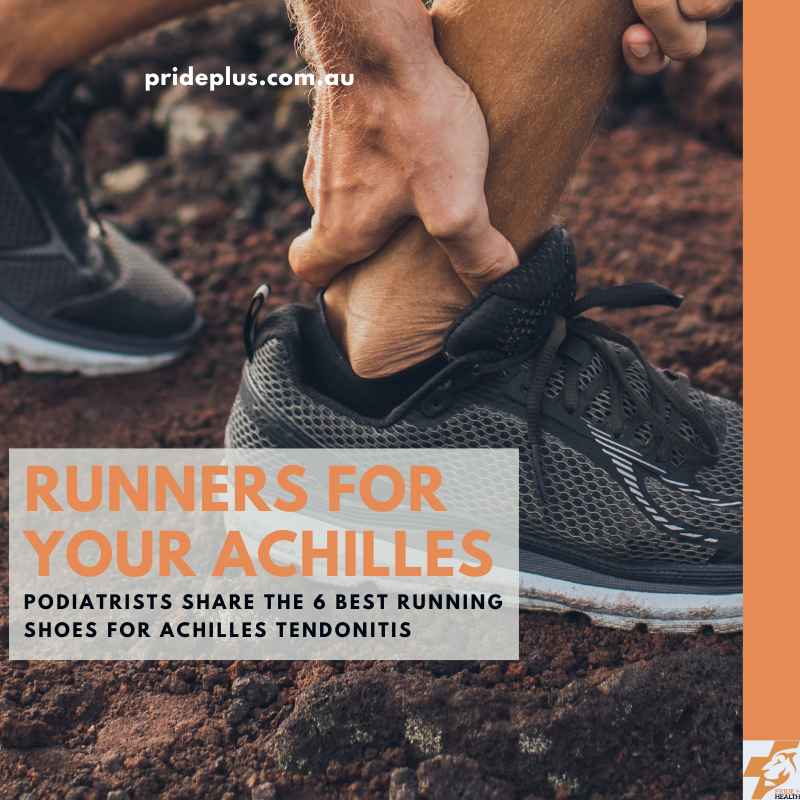
Top Shoes for Achilles Tendonitis
Now that you understand the features to look for, let’s explore some of the best shoes designed specifically for those suffering from Achilles tendonitis:
1. ASICS Gel-Kayano 28
The ASICS Gel-Kayano 28 is known for its excellent support and cushioning, making it a top choice for those dealing with Achilles tendonitis. It boasts a dynamic DuoMax support system that enhances stability.
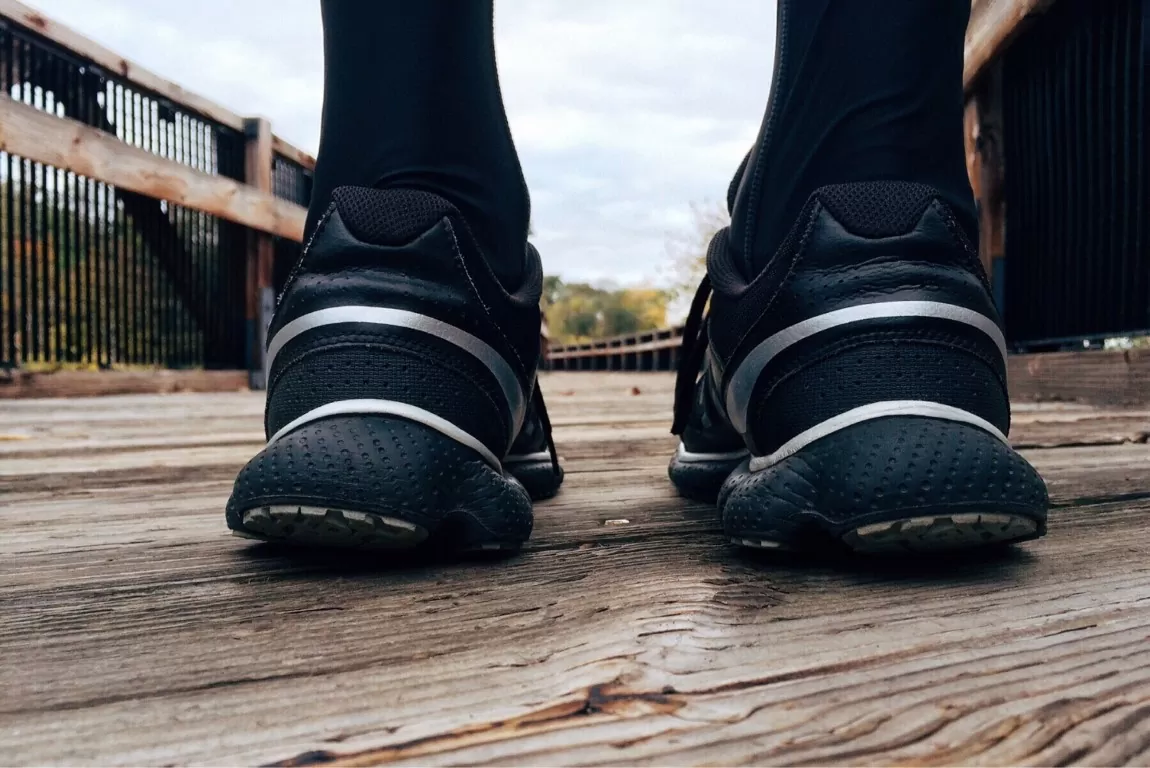
Pros:
- Exceptional cushioning with the Gel technology.
- Good arch support.
- Wide toe box for comfort.
Cons:
- Higher price point.
- May feel bulky for some users.
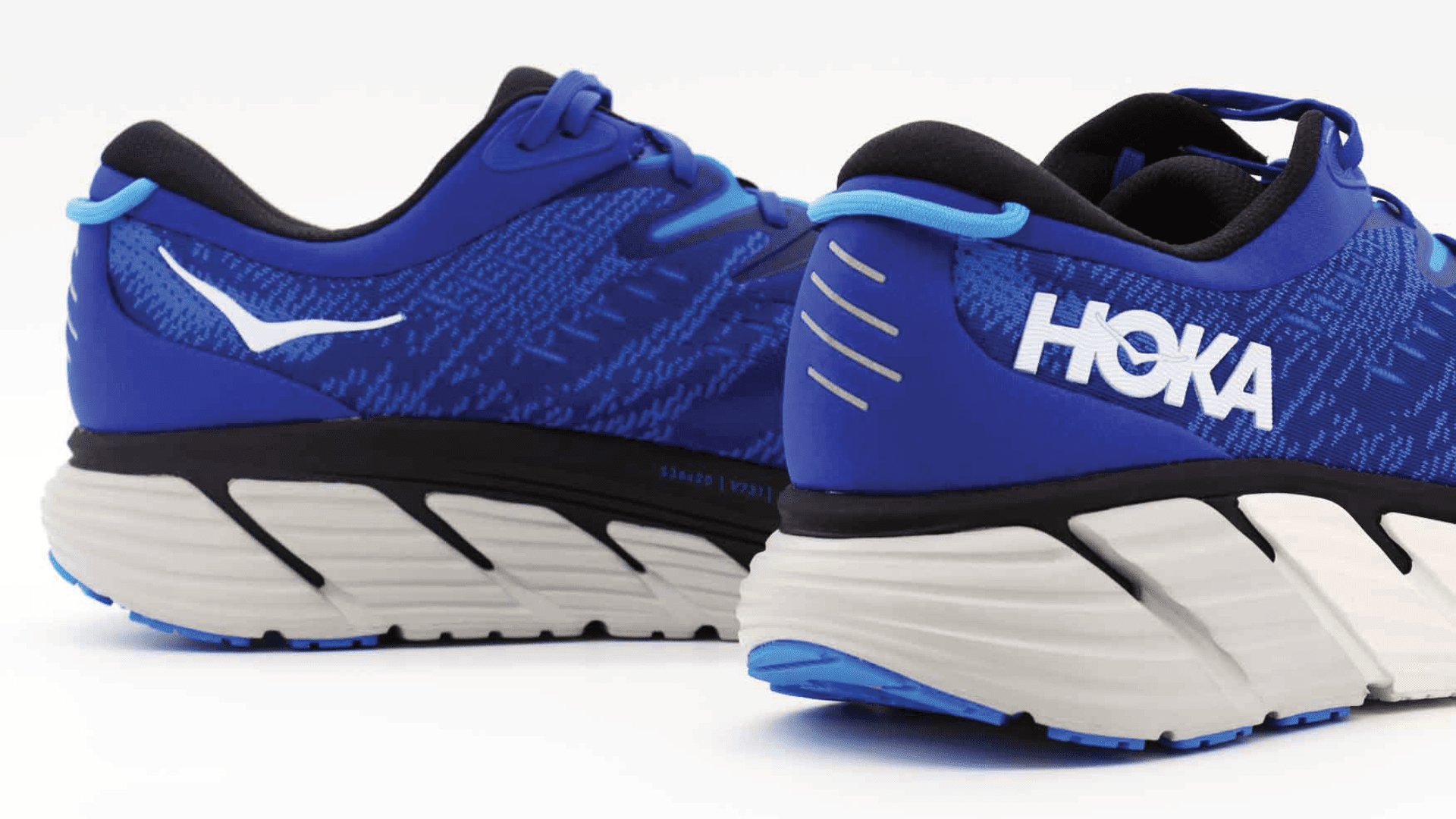
2. New Balance Fresh Foam 1080v11
This shoe is an excellent option for both casual wear and running, with its Fresh Foam midsole providing plush cushioning. The 1080v11 also features a soft, breathable upper for added comfort.
Pros:
- High level of cushioning.
- Versatile for multiple activities.
- Wide size options available.
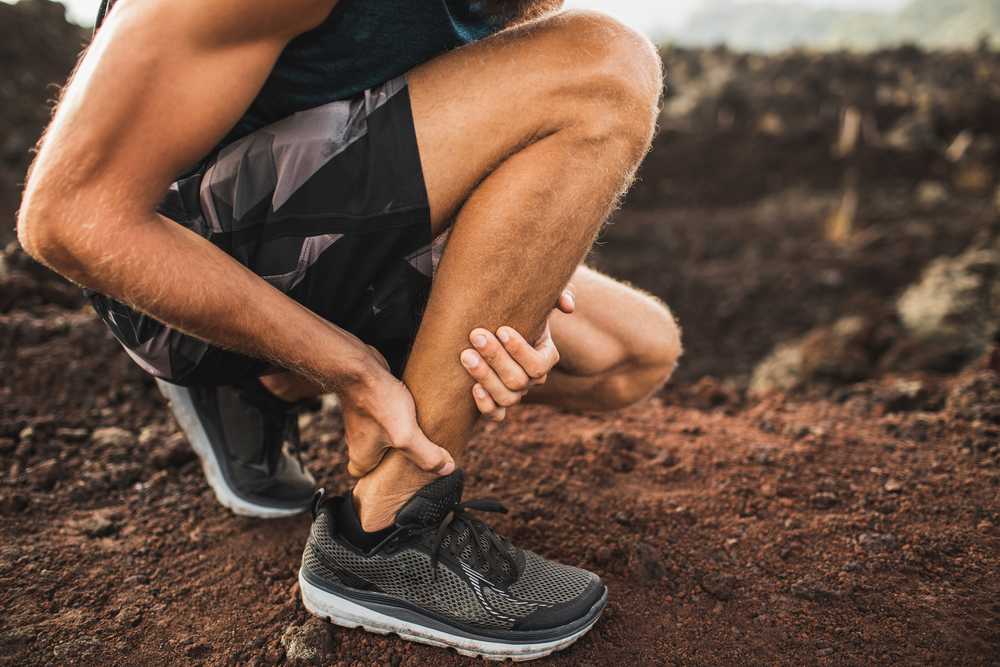
Cons:
- May wear out faster than expected.
- Some users report sizing issues.
3. Hoka One One Bondi 7
The Bondi 7 is one of the most cushioned shoes available, making it ideal for individuals with tendon problems. Its wide base and soft cushioning help relieve pressure on the Achilles tendon.
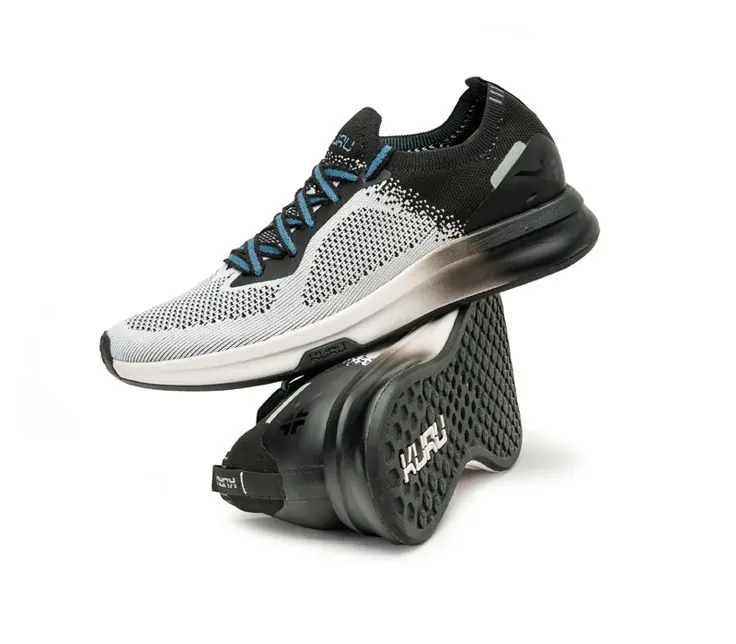
Pros:
- Ultimate cushioning and shock absorption.
- Great for long distances.
- Smooth, comfortable ride.
Cons:
- Heavier than traditional running shoes.
- Expensive compared to other models.

4. Saucony Guide 14
The Saucony Guide 14 provides a perfect balance of support and cushioning, thanks to its PWRRUN midsole. It includes guidance lines that help improve gait efficiency, which can be beneficial for those with tendonitis.
Pros:
- Lightweight design.
- Excellent stability features.
- Sleek appearance.
Cons:
- Not as cushioned for heavier runners.
- May require a break-in period.
5. Brooks Adrenaline GTS 21
This shoe is popular among runners needing a supportive structure. The Brooks Adrenaline GTS 21 features GuideRails technology that supports the natural movement pattern and reduces excess movement that can cause strain.
Pros:
- Excellent stability and support.
- Highly rated for comfort.
- Durable with good traction.
Cons:
- May feel narrow for wide feet.
- Not the best option for casual wear.
Real-World Experiences: Testimonials & Case Studies
To provide further insight, let’s look at a few real-world experiences from individuals who have navigated their Achilles tendonitis journey with the help of the right footwear.
Case Study 1: Sarah, the Weekend Runner
Sarah, a 32-year-old marketing professional, found herself sidelined due to Achilles tendonitis after training for her first marathon. After several painful runs, she switched to the ASICS Gel-Kayano 28 based on recommendations from her running group.
“The cushioning felt like running on clouds! I noticed a significant reduction in pain after just a few outings. The stability it provided made me feel more secure while running,” Sarah said.
Case Study 2: Mike, the Back-to-the-Gym Enthusiast
Mike had not exercised in a while but decided to hit the gym again. Unfortunately, he developed Achilles tendonitis due to improper footwear. After switching to the New Balance Fresh Foam 1080v11, he was back to working out without discomfort.
“These shoes are fantastic! I can finally do my workouts without worrying about my Achilles hurting. I appreciate the cushioning, especially during high-impact exercises,” Mike shared.
Case Study 3: Linda, the Casual Walker
Linda, a 45-year-old teacher, developed Achilles tendonitis from years of standing on her feet during classes. She found relief by using Hoka One One Bondi 7, which offered unparalleled comfort during her daily walks.
“I love how light they feel compared to their cushioning. I can walk for hours without discomfort, which I never thought was possible,” Linda remarked.
Tips for Managing Achilles Tendonitis
While proper footwear can play a crucial role in alleviating pain from Achilles tendonitis, here are some additional tips that can aid in your recovery:
1. Rest and Recovery
Give your body the time it needs to heal. Avoid high-impact activities that can exacerbate the pain.
2. Stretching and Strengthening Exercises
Incorporate calf stretches and strengthening exercises into your routine to help alleviate tension on the tendon. Consult a physical therapist for specific exercises that suit your condition.
3. Ice Therapy
Using ice packs on the affected area can reduce inflammation and provide relief from pain. Apply ice for 15-20 minutes several times a day, especially after activity.
4. Orthotic Inserts
If standard shoes do not provide enough support, consider using custom orthotic inserts designed to relieve pressure on the Achilles tendon.
5. Gradual Return to Activity
Once you start feeling better, ease back into physical activity gradually. Start with low-impact options before transitioning back to your usual routine.
Comparison Table: Best Shoes for Achilles Tendonitis
| Brand & Model | Cushioning | Support Level | Price Range |
|---|---|---|---|
| ASICS Gel-Kayano 28 | High | Excellent | $160 – $180 |
| New Balance Fresh Foam 1080v11 | High | Good | $150 – $160 |
| Hoka One One Bondi 7 | Ultimate | Good | $160 – $180 |
| Saucony Guide 14 | Moderate | Excellent | $140 – $150 |
| Brooks Adrenaline GTS 21 | Moderate | Excellent | $140 – $160 |
Frequently Asked Questions (FAQs)
1. What causes Achilles tendonitis?
Achilles tendonitis is often caused by repetitive strain on the tendon due to activities like running, jumping, or even just prolonged walking. Poor footwear can also contribute to the development of this condition.
2. Can I wear regular shoes for Achilles tendonitis?
While some regular shoes may provide adequate cushioning, it’s important to choose footwear specifically designed to support the Achilles tendon to avoid exacerbating the condition.
3. How can I tell if my shoes are not suitable for Achilles tendonitis?
If you experience discomfort, pain, or increased pressure on your heel or Achilles tendon when wearing shoes, they may not be suitable. Look for signs of wear and inadequate support.
4. How long does it take for Achilles tendonitis to heal?
Healing time varies depending on the severity of the injury. With proper rest and suitable footwear, many individuals find relief within a few weeks. Severe cases may take several months.
5. Is surgery necessary for Achilles tendonitis?
Surgery is usually a last resort and is only necessary in severe cases where conservative treatments have failed. Always consult a healthcare professional to discuss treatment options.
6. Should I continue exercising if I have Achilles tendonitis?
While it’s important to stay active, high-impact activities should be avoided during recovery. Consider low-impact exercises, such as swimming or cycling, until the pain subsides.
7. Can the type of surface I run on affect Achilles tendonitis?
Yes! Running on hard surfaces like concrete can increase pressure on your feet and joints, exacerbating Achilles tendonitis. Opt for softer surfaces like grass or a treadmill when possible.
8. What role do insoles play in managing Achilles tendonitis?
Custom or over-the-counter insoles can provide additional arch support and cushioning, which may help alleviate pressure on the Achilles tendon and improve overall comfort.
9. Are there specific brands known for making good shoes for Achilles tendonitis?
Brands like ASICS, New Balance, Hoka One One, Saucony, and Brooks are widely recommended for their supportive and cushioned footwear designed to help individuals with Achilles tendonitis.
10. Can I wear sandals if I have Achilles tendonitis?
It’s best to avoid sandals that lack support and cushioning. If you must wear sandals, look for those with built-in arch support and a contoured footbed.
11. Should I consult a doctor for Achilles tendonitis?
If you’re experiencing persistent pain or discomfort, it’s vital to consult a healthcare professional to rule out more serious conditions and receive appropriate advice for treatment.
Conclusion
Finding the right shoes is essential for managing and recovering from Achilles tendonitis. By opting for footwear that offers the necessary support, cushioning, and fit, individuals can significantly reduce discomfort and enhance their mobility. Whether you’re a casual walker or a dedicated runner, prioritizing your foot health is crucial. Remember to listen to your body and combine the right footwear with proper care and recovery strategies for the best results.
For more information on Achilles tendonitis and footwear options, consider reviewing these research studies and resources:
- Achilles Tendonitis: Diagnosis and Management (National Institutes of Health)
- Footwear Modifications in Patients with Achilles Tendinopathy (National Institutes of Health)